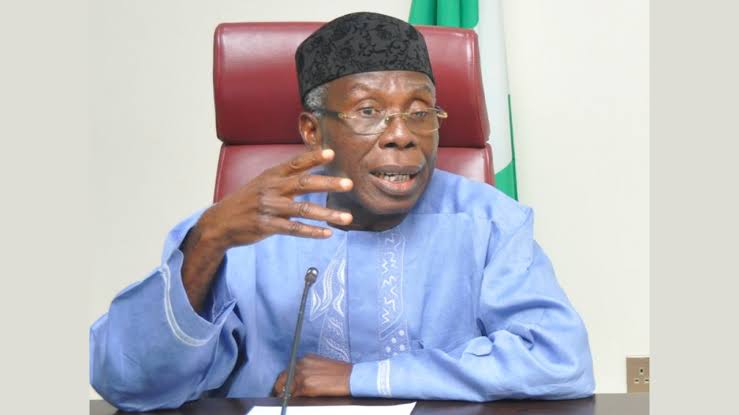Nigerian President Bola Tinubu has mourned the loss of Chief Audu Ogbeh, a towering figure in the nation’s political history, who passed away at age 78 on Saturday. In a statement released by presidential spokesperson Bayo Onanuga, Tinubu commemorated Ogbeh as a “great patriot” whose decades of public service left a lasting imprint on Nigeria’s governance. The former statesman’s family confirmed his death as peaceful, though no cause was disclosed.
Ogbeh’s career spanned over five decades, marked by roles in multiple administrations. He first entered politics in the 1970s as a legislator before rising to prominence as Minister of Communications under Nigeria’s Second Republic (1979–1983). Decades later, he returned to government as Minister of Agriculture and Rural Development under former President Muhammadu Buhari (2015–2019), where he championed initiatives to modernize farming and reduce food imports. A founding member of the ruling All Progressives Congress (APC), Ogbeh had also served as National Chairman of the opposition Peoples Democratic Party (PDP), reflecting his cross-party influence.
Tinubu highlighted Ogbeh’s analytical rigor and problem-solving acumen, noting his reputation for grounding policy proposals in meticulous research. “He was always ready with facts and figures to support his propositions,” the president said, adding that Nigeria would “sorely miss his insightful perspectives.” Tinubu extended sympathies to the government and residents of Benue State—Ogbeh’s home region—as well as to the late leader’s family, friends, and colleagues.
The president’s tribute underscored Ogbeh’s role in shaping critical national conversations, from economic reforms to agricultural innovation. His tenure as agriculture minister saw efforts to address herder-farmer conflicts and boost crop yields, though challenges in these areas persist. Colleagues across party lines have previously acknowledged his willingness to collaborate on bipartisan solutions, a trait that earned him respect amid Nigeria’s often fractious political climate.
While Ogbeh’s later years were marked by quieter advocacy, his influence remained palpable in policy circles. Analysts recall his vocal critiques of fiscal mismanagement and his push for accountability in public office. Tinubu’s acknowledgment of Ogbeh’s “indelible mark” reflects a broader recognition of his legacy as a bridge-builder in a divided political landscape.
The late leader’s passing coincides with ongoing debates over Nigeria’s economic direction, a testament to the enduring relevance of his work. As tributes pour in, his career serves as a reminder of the nation’s complex political evolution—from post-independence reforms to contemporary challenges. Tinubu concluded his message with a prayer for divine comfort for Ogbeh’s family, urging Nigerians to honor his memory through continued dedication to national progress.
